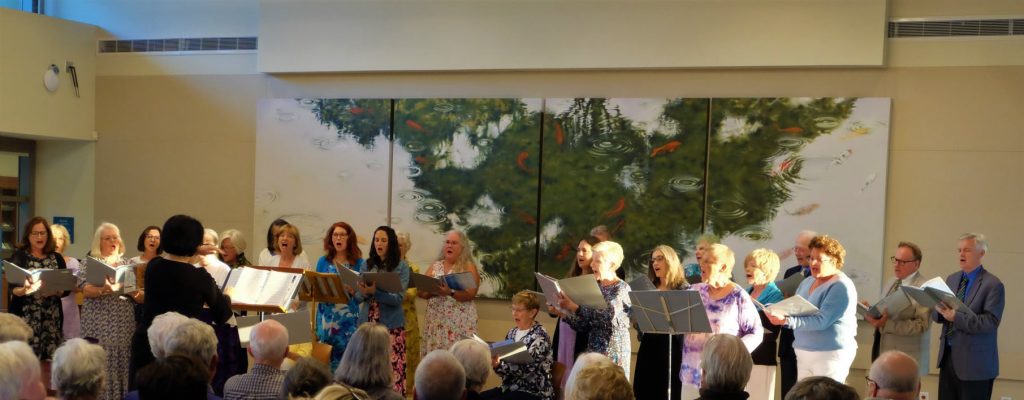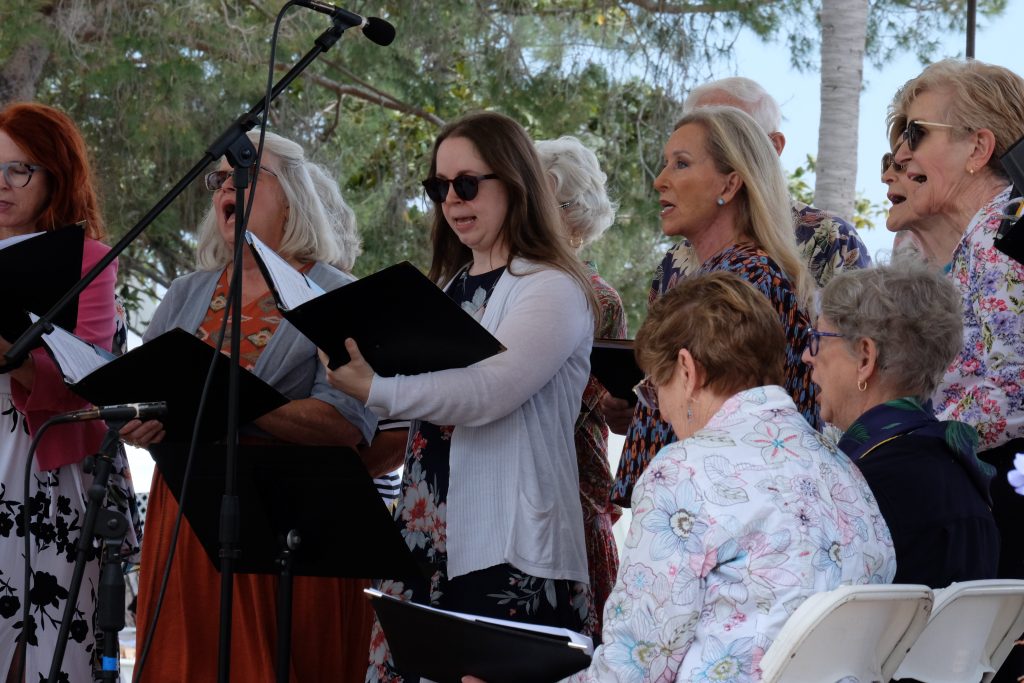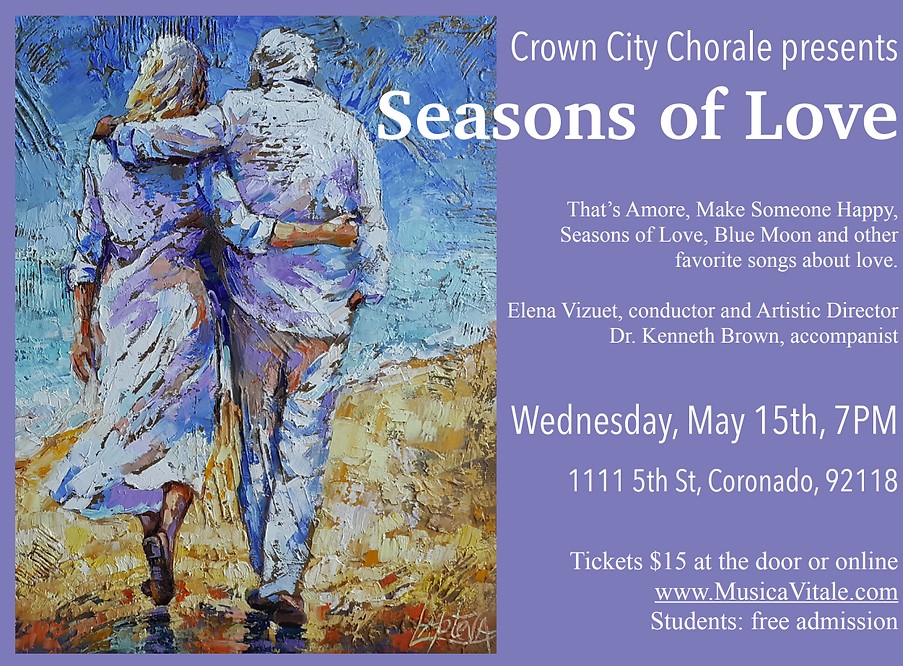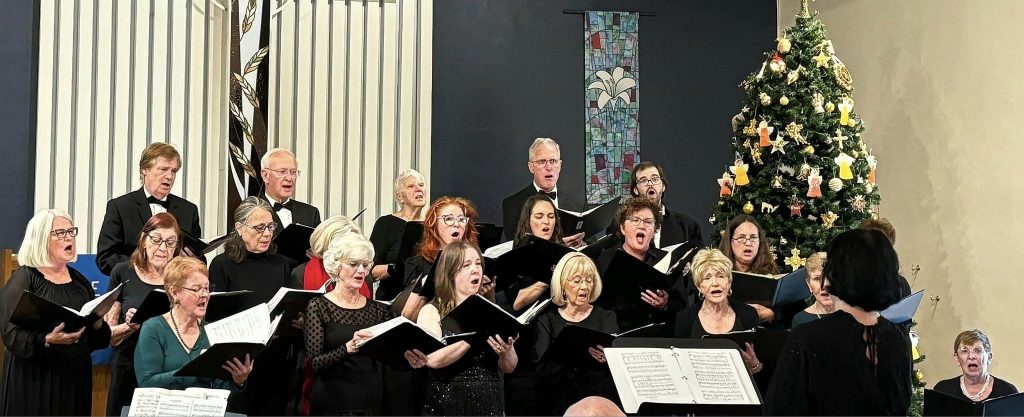Written by Dawn Richards
 What is the season of love? Though we traditionally think of it in February with Valentine’s Day, it wasn’t always so. Poets such as Chaucer spoke of May as the month of love, and so did Shakespeare, who wrote, “Love, whose month is ever May.”
What is the season of love? Though we traditionally think of it in February with Valentine’s Day, it wasn’t always so. Poets such as Chaucer spoke of May as the month of love, and so did Shakespeare, who wrote, “Love, whose month is ever May.”
The Crown City Chorale will celebrate love and unity with its Spring Concert, “Seasons of Love,” at 7 pm on Wednesday, May 15 at the Resurrection Lutheran Church, 1111 5th Street, Coronado. The concert will explore themes of love from around the world through music from Broadway, pop, film, and folksongs. Tickets are $15 at the door or online in advance at www.MusicaVitale.com.
 Perhaps no form of music celebrates love more than folk songs, which serve as a repository of the emotions and experiences that make us human. From long before the written word, these songs also served to both record and teach a culture’s history. Many were created as children’s songs, often accompanied by a dance. With their catchy rhythms, fancy footwork, and simple lyrics, they taught children about their culture’s beginnings and its current norms, values, and ideals.
Perhaps no form of music celebrates love more than folk songs, which serve as a repository of the emotions and experiences that make us human. From long before the written word, these songs also served to both record and teach a culture’s history. Many were created as children’s songs, often accompanied by a dance. With their catchy rhythms, fancy footwork, and simple lyrics, they taught children about their culture’s beginnings and its current norms, values, and ideals.
Some songs were used to convey secret messages, such as the Underground Railroad, while others gave rise to hope in brutal conditions or played a role in protest movements. Still others expressed that most human of emotions – love.
Even those with memory loss may find joy in singing well remembered folksongs from their youth, benefitting their cognitive and mental health.

On Wednesday evening, a fun mashup will be “Two Brazilian Folksongs.” The first, “Peixe Vivo,” is a ciranda, exploring love metaphorically through. . . a fish! Cirandas are a form of music and dance from Brazil’s Atlantic Coast, where wives traditionally sang and danced in a circle, holding hands, lamenting their husbands who were out to sea. This explains the focus on the fish.
Cirandas also included children’s games played through the circle dance, such as the Chorale’s second Brazilian number, “Pirulito, meaning lollipop. The song was introduced by European nobility to teach children to read. Like many such rhymes — think of Mother Goose — the words are nonsensical: “Lollipop, hear it tap, tap, tapping . . .”
“Two American Folksongs” begins with “Get Along Home, Cindy,” thought to originate before 1840 with Appalachian Scots-Irish fiddlers and banjo players, where a young man expresses his utmost admiration for Cindy:
“I wish I were an apple
A-hanging on the tree
And every time that Cindy passed
She’d take a bite o’ me.”
Cindy is followed by “The Water is Wide,” whose origin in southern England is thought to be “Waly, Waly, Gin Love Be Bonny” in 1724. Like all folk songs, the lyrics have changed through the years and in different locales. One iteration has cockleshells and silver bells from the nursery rhyme, “Mary, Mary, Quite Contrary.” Pete Seeger popularized it for contemporary audiences.
The beautifully expressive (but mysteriously vague) Czecho-Slovak folksong, “Waters Ripple and Flow,” hints at a young couple’s love. The lad appears to leave the lass, who opines: “Dearest, forever come back, end the vigil I keep.” But then, the lyrics seem to suggest he returns: “Lo, the mountain has turn’d, Now my happiness dawns.”
The rousing “Blue Moon,” by Richard Rogers and Lorenz Hart, came from two unreleased MGM films in 1933 and 1934. Hart had to change the lyrics for each, then for a third time for a nightclub number. Annoyingly, MGM next demanded a fourth change for commercial release, but with more romantic lines and a snappier title, which charted in the Variety Top Ten. This final version made its way through the Marx Brothers’ “At the Circus” to Elvis Presley, and even Eric Clapton and Rod Stewart. However, the most favored version was sung by the Marcels in 1961, reaching Number One on the Billboard Pop chart.
Other songs with a wildly popular longevity include, “That’s Amore,” “A Summer Place,” and “Seasons of Love” from the musical and film “Rent,” written and composed by Jonathan Larson. The song’s famous lyrics, “Five hundred twenty-five thousand, six hundred minutes,” reflect on the value of a year in human life, ultimately deciding a measure of love is more meaningful. Tragically, Larson died the night before the show’s opening. Though “Seasons of Love” was meant to be sung later in the show, the cast performed the song at the show’s beginning in his honor.
The last of the 11 songs will send the audience on its way with “Make Someone Happy,” a fitting end to an evening well spent.
Submitted by Dawn Richards





